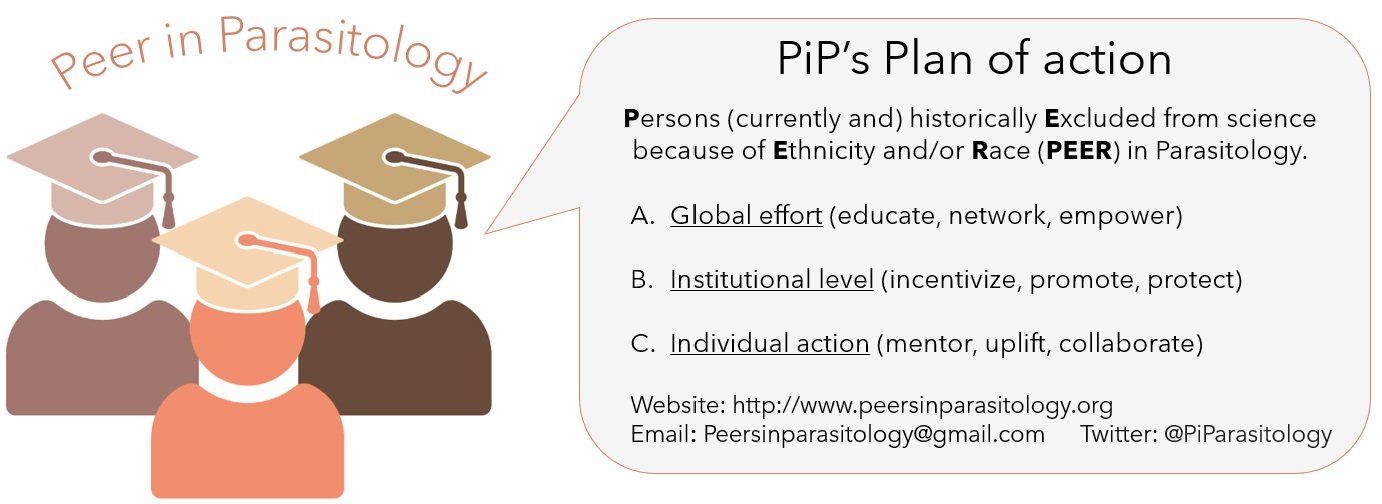Building an inclusive and equitable parasitology research community with Peer in Parasitology (PiP)
PiP works in partnership with our non-PEER colleagues in the field of parasitology to provide parasitologists of color from around the world with a safe, professional, collaborative, and collegial space to engage with each other. We seek to promote the contributions of parasitologists of color and strive to increase PEERs’ representation and cultural awareness of communities most impacted by parasitic infections within the broader parasitology community.
Upcoming Parasite Hour with PiP
-
Frances K. Mercer, PhD (she/ her)
Associate Professor, Department of Biological Sciences
Cal Poly Pomona
Information is coming soon
-

Extreme cell biology of a minimal eukaryotic pathogen
Microsporidia, an early-diverging group of fungi, are tiny, single-celled parasites that infect a wide range of animal species, from worms and honey bees to humans. In humans, these opportunistic pathogens can cause life-threatening infections in immunocompromised individuals. To initiate an infection, microsporidia harness a specialized harpoon-like invasion apparatus called the polar tube (PT) to gain entry into host cells. The PT is tightly coiled within the transmissible extracellular spore, and is about 20 times the length of the spore. Once triggered, the PT is rapidly ejected, within milliseconds, and is thought to penetrate the host cell, acting as a conduit for the transfer of infectious cargo into the host, to initiate infection. Once inside host cells, microsporidia create a niche which is permissive to their development. We combine optical microscopy, Volume electron microscopy and structural cell biology to decipher the 3-dimensional organization, dynamics, and mechanism of the polar tube, parasite development, and host-parasite interactions.
-

Please join us on Friday 8th at Noon EST for Parasite Hour with Dr. Noelia Lander
Dr. Lander is an Assistant Professor in the Department of Biological Sciences at the University of Cincinnati, where she is establishing an exciting research program studying signal transduction pathways in trypanosomes. Her long-term goal is to find alternative strategies to control Chagas disease, a silent sickness affecting millions worldwide, and understand the peculiar nature of these fascinating unicellular eukaryotes.
Many unicellular eukaryotes, pathogenic and free-living alike, transition between developmental forms during their life cycle. How these organisms sense the environment to determine when and where to differentiate is largely unknown. Noelia team's recent work with the human pathogen Trypanosoma cruzi–agent of Chagas disease–revealed the presence of two putative cAMP signaling microdomains in this parasite: the flagellar tip and the contractile vacuole complex (CVC). Noelia team's data suggest that adenylate cyclases act as signal sensors and transducers in these subcellular compartments, shedding light into the mechanisms driving environmental sensing and cell differentiation in this genomically complex parasite.
